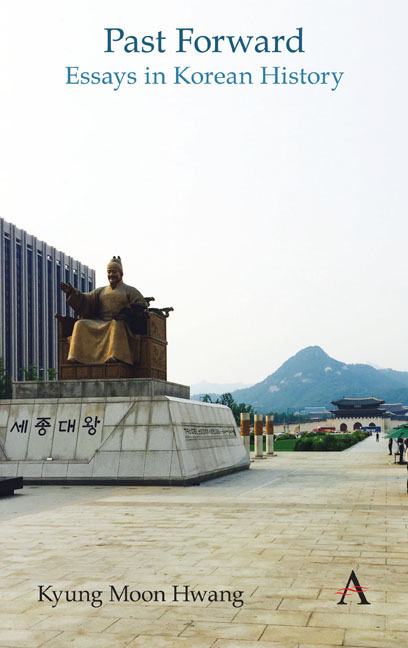Book contents
- Frontmatter
- Contents
- List of Figures
- Foreword
- Chronologies of Korean History
- Themes
- Acknowledgments
- Note on Romanization and Spelling
- Part I Circulating History
- Part II Durable Traditions
- Part III Ancient Remains
- Part IV Dynastic Depths
- Part V Modern Origins
- Part VI Challenges of Nationhood
- Part VII History Makers
- 41 Demythologizing King Sejong the Great
- 42 Modern Lady Shin Saimdang
- 43 Five Potential National Heroes
- 44 A Portrait of Great Painters
- 45 Four Young Men from 1884
- 46 Na Hye-seok
- 47 Hyundai Motors and Chung Ju-yung
- 48 Yun Isang and the East Berlin Case
- 49 Ri Young-hee, Iconoclast for Democracy
- 50 Kim Young Sam's Broad Historical Appeal
- 51 Kim Dae Jung's Historic Election
- Part VIII External Presences
- Part IX Trials of Modernization
- Part X Gripped by the Past
- Index
47 - Hyundai Motors and Chung Ju-yung
from Part VII - History Makers
- Frontmatter
- Contents
- List of Figures
- Foreword
- Chronologies of Korean History
- Themes
- Acknowledgments
- Note on Romanization and Spelling
- Part I Circulating History
- Part II Durable Traditions
- Part III Ancient Remains
- Part IV Dynastic Depths
- Part V Modern Origins
- Part VI Challenges of Nationhood
- Part VII History Makers
- 41 Demythologizing King Sejong the Great
- 42 Modern Lady Shin Saimdang
- 43 Five Potential National Heroes
- 44 A Portrait of Great Painters
- 45 Four Young Men from 1884
- 46 Na Hye-seok
- 47 Hyundai Motors and Chung Ju-yung
- 48 Yun Isang and the East Berlin Case
- 49 Ri Young-hee, Iconoclast for Democracy
- 50 Kim Young Sam's Broad Historical Appeal
- 51 Kim Dae Jung's Historic Election
- Part VIII External Presences
- Part IX Trials of Modernization
- Part X Gripped by the Past
- Index
Summary
Hyundai Motor Company, one of the world's top automakers and, along with Samsung Electronics, the most recognized Korean brand on the global stage, has a history that well reflects that of modern Korea itself.
It begins with the founder, Chung Ju-yung, the legendary chairman of Hyundai. He was born in what is now North Korea in the early twentieth century, and by the time he passed away in March 2001, Hyundai had become one of the largest enterprises in the world and a symbol of South Korea's industrial might.
Hyundai Motor was established in 1967 as a favored component of Hyundai Corporation, which Chung had started in the early 1950s as a supplier and transporter for the Korean War. In the 1960s, Hyundai, particularly as a construction firm, grew hand-in-hand with the state-led development drive pursued by President Park Chung-Hee. Hyundai even built the Seoul-Busan Expressway, the main highway in South Korea, which opened in 1970.
The young car company, meanwhile, worked mostly on producing knockoffs of foreign models until 1976, when it introduced South Korea's first original car, the Pony. The Pony became not only a manufacturing milestone but a cultural landmark for the emerging urban, consumerist society. The domestic success of this model led to expansion into the international market, a process that achieved its first major breakthrough in 1986, when the Hyundai Excel began selling in the United States. There, the Excel became somewhat of a surprise hit due to its affordability, which was enough to tide the company over until it could improve the quality and technological sophistication of its cars.
Today, Hyundai Motor is much more associated with dependability than affordability, the result of an arduous half-century journey as the company became an emblem of South Korea's larger shifts in industrialization, digitization, and transformation into a postindustrial service economy.
But the company also became a site and symbol of major difficulties in the country as a whole. Due to its close association with the state, Hyundai's growth as a conglomerate and as a car company has always raised questions about the sacrifices made by its workers.
- Type
- Chapter
- Information
- Past ForwardEssays in Korean History, pp. 140 - 141Publisher: Anthem PressPrint publication year: 2019



